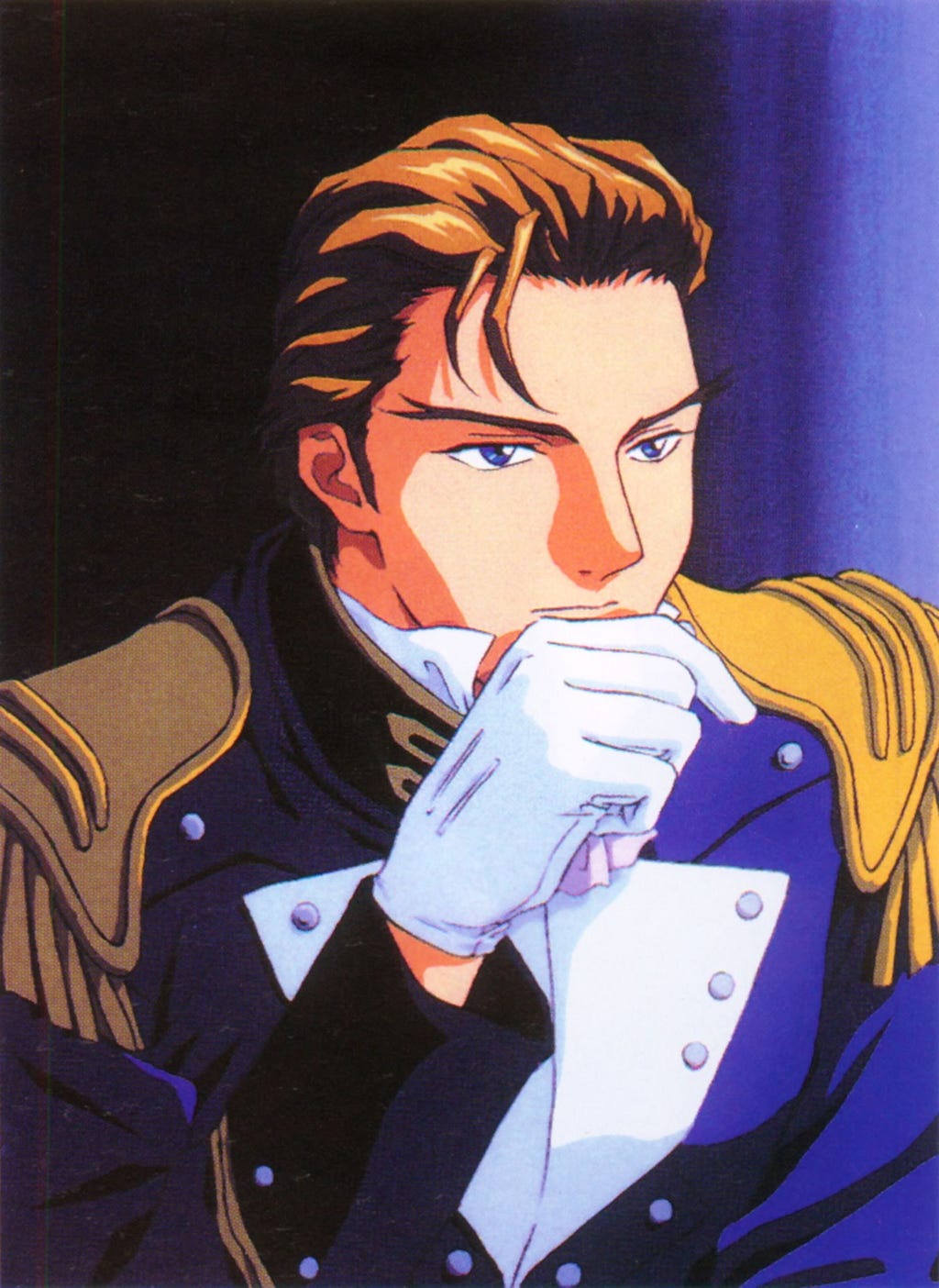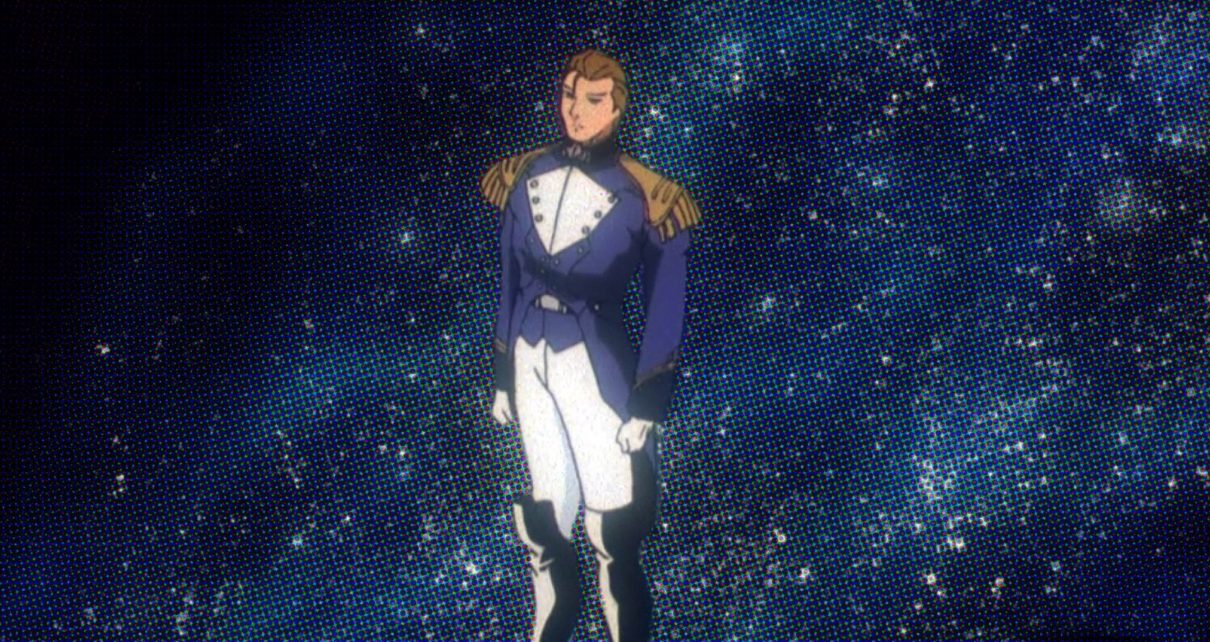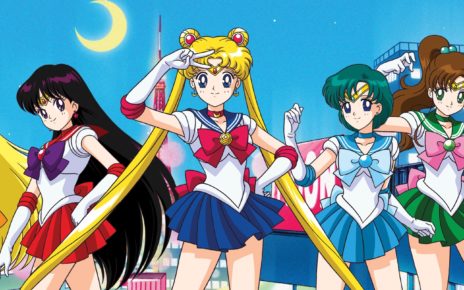You can tell a lot about a person by the way they choose to go quit their job. As a New York Times story today called out, ex-Attorney General Jeff Sessions made a habit of carrying a resignation letter in his pocket every time he went to the White House. History judges all of us by the decisions we make when our character is tested, and if there’s one Gundam character who knew that better than anyone else — who obsessed over it — it was Treize Khushrenada of Gundam Wing.

War Is for Losers is a meditation on Mobile Suit Gundam.
Treize was many things in the course of that 1995 anime: military commander, weapons developer, international sovereign, and philosophizing manipulator-in-chief. He was also a man of (warped) principle. When he decided to quit his job as the commander of his elite military organization Oz (Episode 25: “Quatre vs. Heero”), he did it by giving his flustered bankrollers in the series’ mysterious Romefeller Foundation a speech on why their reliance on drone warfare (aka “mobile dolls”) was wrongheaded. In so many words, he calls them winners of a rigged game. Rather than win alongside them, he concludes, “I’m telling you I want to be a loser.”
In Treize’s words, loserdom means retaining your humanity by continuing mankind’s beautiful and elegant history on the battlefield. Gundam Wing portrays him, in his lush blue military garb and detached demeanor, as a leader capable of getting practically anyone on his side, especially if you’re watching the show’s English dub, where David Kaye’s voice fills him with gravitas and charisma. It’s a similar air given off by the Judge in Cormac McCarthy’s Blood Meridian, down to the fact that both characters are prone to erudite and hypnotically discursive rhetoric.

The fact of Treize, however, is that he is the epitome of bullshit.
His charisma masks years of manipulation, subterfuge, and backstabbing in the pursuit of ever-increasing power. There are legions of soldiers who love him and die for him, from his right-hand deputy Lady Une, to the rank and file of Oz, to an entire army that literally called themselves the Treize Faction.
Meanwhile, Treize shoots birds, waxes philosophical, builds scary-powerful weapons of mass destruction, and advocates for sending ever more bodies to their deaths. Throughout he argues that conflict and bloodshed is one of the most prized human traditions ever devised. In that same resignation speech, he says: “What mankind needs is not absolute victory, but a certain demeanor in fighting, an attitude toward fighting….I used to think that the ideals of the people in the space colonies, such as their highly praised pacifism, were just pitiful complaints borne in and of their own ignorance of tradition.”
“As long as mankind exists in this world, there will always be battles.” -Treize Khushrenada
When Treize makes a comeback following his resignation and Napoleon-esque exile, he does so to engineer one of the most destructive space battles the world has ever seen, nominally with the goal of ending armed future conflict. He seizes control of the Earth’s military might and takes the fight to space for a so-called final battle between the Earth’s forces and a terrorist organization called the White Fang, which is led by Wing’s other main antagonist, Milliardo Peacecraft aka Zechs Marquise. Even as Treize leads soldiers to their deaths again, he does so by challenging Milliardo to a duel while piloting a mobile suit painted to evoke the blue military uniform he wears. For Treize’s brand of command, performative chivalry is literally half the battle.
The writer Alyssa Gonzalez does a great job of fanning away this smokescreen in an essay for The Orbit, “Treize Khushrenada You Beautiful Asshole: Gundam Wing in the Age of Fascism.” Gonzalez grounds Treize’s stated goal in the concepts of “negative peace” vs. “positive peace.”
It’s particularly interesting rewatching in this era, because in our world, the battle between negative peace — what Treize and Relena pursue with all their might — and a positive peace that flows from genuine justice is reaching a fever pitch, with entirely too many people willing to equivocate between them in the name of quiet. In our world, provocateurs far less subtle and less genteel than Treize Khushrenada try to engineer battles between different subsets of the world’s wounded, and thinkpiece-writers far less savvy and less inspiring than Relena Peacecraft try to convince us all that stopping where we are right now means all the problems go away.
Narcissism and subjugation are crucial to Treize’s long-term vision of peace. When he realized he couldn’t become the leader of the eventual unified humanity on Earth and in space, which was his goal for roughly half the series before his resignation from Oz, he pivoted. He saw an opportunity to thrust himself at the forefront of a transformative period of history, in a shiny new mobile suit, proclaiming himself the Earth’s savior and the agent of change for its next generation. If you can’t lead the world, why not martyr yourself for it?
And that’s exactly what he does. Before the Gundam pilot Wufei Chang finally kills him, Treize gives probably his most memorable line in the entire series. Wufei demands that he take responsibility for the lives that he’s destroyed, those soldiers he’s sent to their deaths.
Wufei: “You’re only capable on looking down on people like this. You’re only fighting to satisfy your ego. How many people have died for you? Huh?!”
Treize: “Do you really want to know?”
Wufei: “Huh?”
Treize: “As of yesterday, 99,822 people.”
Wufei: “What?”
Treize is dispassionate, calm, and resigned as he gives those numbers. He knows Wufei will take offense to them, just as he knows they are unforgivable. In the last episodes of the show, Treize allows Wufei to destroy him after their series-long rivalry, but this was another manipulation. His death didn’t end war, it didn’t absolve him of his sins, and his absence directly led to the events of Wing’s companion movie, Endless Waltz.
Treize knew the consequences of all of this, encouraging his cult of personality to the very end, sending about 100,000 people to their graves along the way. He’s a monstrous character, the same way many other well-dressed or smooth-talking world leaders and other agents of change have revealed themselves to be monstrous characters.
He has another thing in common with them. He was, by his own definition, a loser.
Thanks for reading The Dot and Line, where we talk about animation of all kinds. Don’t forget to follow us on Twitter and sign up for our newsletter.





